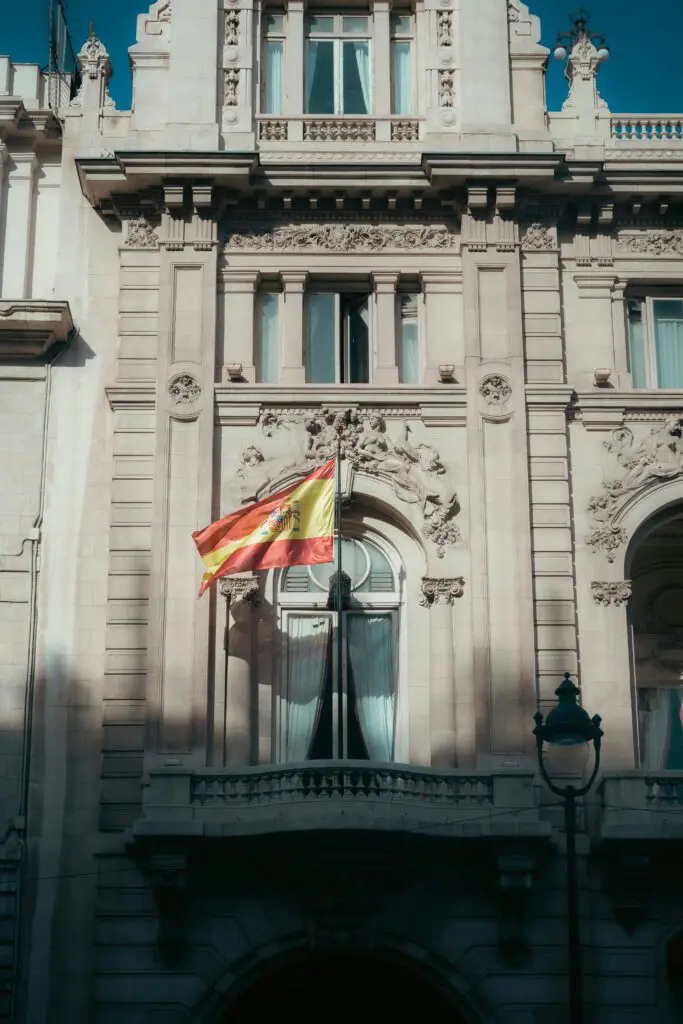The Investors residence permit (also known as golden visa) has been one of the most popular vehicles used by non-European expats in order to start a life in Spain. Between 2019 and 2020, before Brexit fully took effect, some UK citizens secured Spanish Golden Visas through property investments in anticipation of losing EU free movement rights. However, Spain’s new immigration law reform that came into full effect during April of this year has ended the Golden Visa program for new applicants. This raises important questions for those who already hold a Golden Visa from earlier years. You may now find yourself with multiple questions regarding your legal status in the country. In this article, we will answer some of the most common questions we have received.
Golden Visa Background and the 2025 Law Change
Spain’s Golden Visa (introduced by Law 14/2013) granted residency to non-EU investors meeting certain thresholds, most commonly by purchasing Spanish real estate worth at least €500,000. It was extremely attractive at the time because it allowed holders and their immediate family to live in Spain and travel freely in Schengen, with minimal stay requirements. Due to the new movement limitations that arose after Brexit, Britons found this permit especially attractive.
The Spanish government approved a reform of the immigration law during late 2024, eliminating the investor’s residence permit, and not accepting any new applicants after 3rd April. However, measures were put in place in order to protect older applicants who were already living in Spain under the Golden visa.
Renewing a Golden Visa Under the New Rules
You absolutely can renew your Golden visa. This process will be guided by the older rules. The investor permit would typically be extended by a two-year period, and subsequently renewable in 5 years increments. The nature of the process makes it advisable to start preparing for your renewal application at least 3 months before the deadline. If you applied during mid-2023-2024, you would be looking for a two-year increment.
When renewing a Spanish Golden Visa, applicants must continue to meet the key conditions demonstrated during their initial application. The qualifying investment must be maintained at or above the minimum threshold, and proof of ownership or investment must be provided. Applicants must also hold a clean criminal record, which may require updated police certificates if they have spent extended time abroad. Continuous private health insurance in Spain is required, without any gaps in coverage, and holders must have entered Spain at least once during the validity of their permit, though visiting once a year is strongly advised. While the investment generally demonstrates financial capacity, applicants may still be asked to show sufficient means of support. Finally, for family members included in the permit, it is necessary to prove that the qualifying relationship remains valid. For example, that a marriage is ongoing or that children remain financially dependent.
Changing or Selling Your Investment Property
Many Golden Visa holders eventually consider altering their investment. They may want to sell the property they purchased, buy a new one, or switch to a different investment vehicle. It’s crucial to understand how such changes affect your residency status now that new Golden Visas are no longer being issued.
For Golden Visa holders through real estate, it is allowed to sell the original property as long as another property, or a combination of properties, of equal or greater value is purchased, maintaining the minimum investment of €500,000. It does not need to be a single property; several that together meet the threshold are acceptable. To avoid any lapse, the new purchase should be completed before or at the same time as the sale, so that the investment never falls below the required minimum.
Those who qualified through real estate can sell their property, provided they maintain an investment that still exceeds the minimum threshold of €500,000. This can be achieved with a new property or multiple properties whose combined value meets the requirement. What matters is that the investment never drops below the threshold at any time.
For renewals, applicants must prove that the qualifying investment has been maintained throughout the validity of the visa. The investment can be modified in value (for example, replacing one property with another), but the type of investment cannot be changed. This means that someone who applied through real estate cannot later switch to private funds or other assets to renew the permit.
When planning a sale and purchase, it is important to ensure there are no gaps where you temporarily fall below the required investment. Ideally, the new property should be purchased before or simultaneously with the sale of the old one, so that continuous eligibility is preserved for renewal purposes.
When Could You Lose Your Golden Visa?
Please consider the scenarios that might lead to losing your Golden Visa status:
- If your qualifying investment ever falls below the legal minimum. For example, selling a property without replacing it or reducing your holdings so they drop under €500,000, you risk losing the Golden Visa, as the permit requires that the investment be continuously maintained. In addition, at renewal or during checks, failure to meet the key conditions, such as holding valid Spanish health insurance or not entering Spain at least once during the permit period. While authorities may allow you to correct certain issues like renewing insurance or submitting missing documents, falling below the investment threshold or committing serious breaches will invalidate the residency permit.
- Serious crimes will also affect your chances. Criminal activities or being found to be a security threat, Spanish authorities can revoke the residency. Clean criminal record requirements apply at each renewal. Generally, minor infractions won’t typically impact your visa, but a serious conviction could.
- In the unfortunate event that the primary Golden Visa holder passes away, family members on the permit should seek legal advice. The family’s permits were tied to the main investor’s status. Spain’s law doesn’t automatically transfer the Golden Visa to an heir. Family members may have to convert to a different residence status.
In general, Spanish authorities have indicated they will honor existing Golden Visas, so you are secure as long as you honor the terms. Should any issue arise, they must notify you and give a chance to respond before canceling a permit.
Renewals for Family Members (Dependants)
As said before, one major advantage of the Golden Visa was the ability to include family members as dependents, granting them Spanish residency tied to the main investor’s permit. Eligible relatives typically included a spouse or registered partner, minor children, financially dependent adult children up to their mid-20s, and even dependent parents of either the investor or spouse. Each family member received their own residence permit linked to the main investor’s visa, with the same rights of residence and Schengen travel. Over time, Spanish law also clarified that dependents are allowed to work in Spain, giving spouses and adult children the option to take up employment without needing a separate work permit.
At renewal, dependants’ permits are processed together with the main applicants and require proof that the family relationship and dependency still exist. For example, spouses must still be legally married or partnered; children who were minors simply renew until 18, while those who have since become adults must show continued financial dependence (e.g. full-time students supported by the investor). Dependent parents also need evidence that they remain financially reliant. As with the main applicant, all family members must provide updated documents such as health insurance, police clearances, and passports. Careful planning is needed as children approach adulthood, since those who marry or become financially independent will no longer qualify and may need to move to a different visa type.
Divorce and the Golden Visa: What Happens?
Life events like divorce can significantly impact Golden Visa arrangements because the residence rights of a spouse are contingent on the marital relationship. Two separate considerations arise:
Primary applicant
If you are the owner of the investment, a divorce in itself does not strip you of your Golden Visa. You still have your residency as long as you maintain the investment and meet the other requirements. The issues could arise when premarital agreements could affect your investments.
For example, if the couple’s €500k+ property was jointly owned, a divorce settlement might split the assets. Suppose the property is sold and each party takes half the proceeds, then neither party individually retains the required €500k investment, putting both of their Golden Visas in jeopardy. Even if the property isn’t sold, one spouse might transfer part ownership or pay out a share to the other, potentially leaving the main investor with less than €500k in the property. It’s critical for the primary investor to retain at least €500,000 in qualifying investments in their own name post-divorce to keep the visa. In practice, this might mean that either the main applicant keeps the entire property, or buys out the other’s share to remain above the threshold. If the main investor ends up below the threshold due to the split, their Golden Visa would be invalidated for not meeting investment criteria.
Therefore, from an immigration standpoint, the ideal divorce outcome for a Golden Visa couple would be for the principal investor to maintain the investment intact or immediately substitute it with other investments of sufficient value.
Dependent spouse
The spouse who was included as a family member on the Golden Visa will lose their Golden Visa residency upon divorce. Spanish Golden Visa rules require that the family relationship continues for the family member to keep the permit. Once a divorce is finalised, the basis for the spouse’s residence rights disappears – they are no longer the investor’s spouse, so they no longer qualify as a Golden Visa family member. Next renewal would not be possible under the same rules.
However, there are several ways for the ex-spouse to remain in Spain outside the Golden Visa.
The non-lucrative visa would allow them to remain in Spain, and has become a popular route for many UK nationals post-Brexit, though it requires spending >183 days/year in Spain and meeting income thresholds, unlike the flexibility of the Golden Visa.
If the couple had been living in Spain for a long time, the ex-spouse might qualify for long-term residence independently. If he/she had attained permanent residency (which is independent of the marriage), a divorce would not affect that status. Please consider that this second route only arises if you have spent your time inside the country, as most Golden Visa dependents do not meet the physical residency requirement for permanent residency unless they truly settled in Spain.
In humanitarian cases or if the spouse is a parent of a Spanish minor child, etc., there might be other family-based permits like an arraigo familiar or family reunification under general immigration law if a child was born in Spain.
The end of Spain’s Golden Visa for new applicants has created uncertainty, but those who obtained their permits before the reform can still protect and renew their status if they follow the rules carefully. Each case, whether involving property changes, family members, divorce, or long-term planning, carries its own details and potential risks. If you are unsure about how the new law affects your situation, we recommend seeking tailored advice.
Our team at DCC is here to review your case, answer your questions, and help you plan the next steps. Contact us to arrange a first free call and ensure you keep your residency on secure footing.








